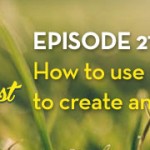Let the Idiots Be Idiots
This week Ed and I were looking at how to cope with the behaviour of someone close to you that you do not agree with, even to the point where a close family member is doing bad things. We got an email from a listener who wanted to know how they could cope with a cousin who’s behaviour was potentially harmful to members of the family. This is interesting because in most cases that examine the law of allowing do so from a macro perspective like issues of war or terrorism. Yet, the law of allowing is operating every minute of every day sometimes in small and often insignificant things that happen all the time.
The issue raised here is how does tolerating bad behaviour fit with the Law of Allowing. Well it doesn’t. Let me explain.
The Law of Allowing is not passive
It is often a common belief that the law of allowing implies a passive acceptance of other people’s behaviour, it is not. We should always confront injustice and never allow it to dominate.
“The only thing you should be intolerant of is intolerance”
Plato
Your emotional litmus paper
You may remember from your chemistry classes at school that litmus paper is used to dip into a liquid to test it’s Ph, to decide if it is acid or alkaline. Our emotions are just like litmus paper and show us a similar response to any situation. Straight away, our emotions indicate to us if this is good or bad, right or wrong. Some people will call this our gut reaction. Our emotions are telling us whether or not we should proceed. In the same way we would say ‘if it feels good do it, if it feels bad don’t do it’.
What is it when we react?
When we have an emotional reaction it is usually present in our body as an intake of breath, increased heart rate and perhaps, the activation of the fight, flight, freeze reaction. But, why are we reacting?
A reaction is telling us that we have a problem. It is the difference between a response and a reaction. When we respond we mindfully observe the situation and make an ordered decision as to what we are going to do about it. When we react our cognition tends to go for a walk and our emotions take over.
How powerful is your reaction?
We all have problems. Sometimes those problems are hidden and we may not even know that they are there. It would be good if there was something there that would let us know when we have a problem that needs to be dealt with. Well there is, it is our emotions.
When we experience something we may register that it is wrong and decide to do something about it. This is a response. When we experience something that makes us angry, we have high levels of energy that might make us shout or lash out, this is a reaction.
When we react we are describing unresolved emotional issues that are within us. Let’s say that we were abused as a child, when we watch news casts of child abuse on the news our reaction may upset us or make us angry or irrationality volatile. We are reacting because we have unresolved emotional energy within us and we are re-activating these unresolved issues.
If we were abused but are able to respond to the news and not become irrationally angry, we are describing that we have dealt and processed those emotions within us. This is the difference between a reaction and a response.
The degree of the energy of our reaction within us describes how much of an unresolved problem that we have.
What is the point of all this?
When you react negatively to an event you should look within and decide how much of the problem that you are experiencing is your unresolved emotional issues and how much is related to the current situation. When you have continuing high levels of reaction I suggest that you seek psychotherapy and talk it through.
Do not be passive
I am not suggesting that if you feel anger or high emotion you should not do anything. It may be that you are right about the person or the situation that you are experiencing.
The law of allowing is not passive. When we react we are not allowing. When we respond we are allowing.
We must remember that within the law of allowing we need to look after ourselves and allow our self to be fulfilled and happy and respond mindfully and be prepared to change things when they are not.
Take care
Sean x


Trackbacks & Pingbacks
[…] Here’s Sean’s blog post for the topic, well worth a read […]
Leave a Reply
Want to join the discussion?Feel free to contribute!